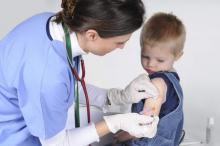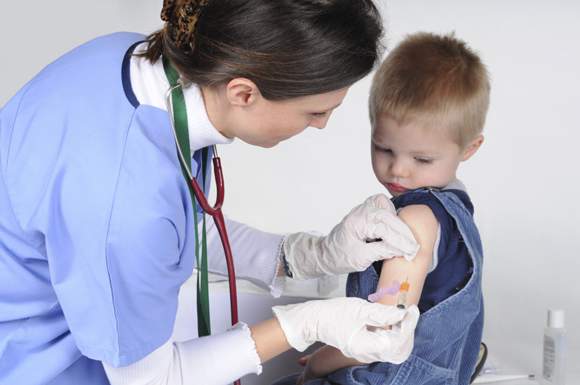User login
For children who need two doses of influenza vaccine in a season, text messages containing health literacy information are more effective at reminding parents to bring their children in for a second vaccination than are text messages or written messages alone, according to a study published in Pediatrics.
A team of investigators led by Dr. Melissa S. Stockwell of Columbia University Medical Center, New York, found that nearly 73% of children in the educational text message group received a second dose of influenza vaccine by April 30, whereas 67% of those in the conventional text message group received a second dose, and 57% of the written reminder–only group received a second dose (Pediatrics 2015 January [doi/10.1542/peds.2014-2475].
The randomized, controlled trial included 660 families and was conducted during the 2012-2013 influenza season in three community-based pediatric clinics in New York. The majority of the population was categorized as low income, urban, and predominantly Hispanic. Text messages were sent in English or Spanish based on the participants’ preferences.
“The inclusion of health literacy–promoting information in a text message second-dose reminder could potentially increase its efficacy by providing specific information that may compel a family to act overall and in a more timely fashion,” wrote Dr. Stockwell and her associates.
For children who need two doses of influenza vaccine in a season, text messages containing health literacy information are more effective at reminding parents to bring their children in for a second vaccination than are text messages or written messages alone, according to a study published in Pediatrics.
A team of investigators led by Dr. Melissa S. Stockwell of Columbia University Medical Center, New York, found that nearly 73% of children in the educational text message group received a second dose of influenza vaccine by April 30, whereas 67% of those in the conventional text message group received a second dose, and 57% of the written reminder–only group received a second dose (Pediatrics 2015 January [doi/10.1542/peds.2014-2475].
The randomized, controlled trial included 660 families and was conducted during the 2012-2013 influenza season in three community-based pediatric clinics in New York. The majority of the population was categorized as low income, urban, and predominantly Hispanic. Text messages were sent in English or Spanish based on the participants’ preferences.
“The inclusion of health literacy–promoting information in a text message second-dose reminder could potentially increase its efficacy by providing specific information that may compel a family to act overall and in a more timely fashion,” wrote Dr. Stockwell and her associates.
For children who need two doses of influenza vaccine in a season, text messages containing health literacy information are more effective at reminding parents to bring their children in for a second vaccination than are text messages or written messages alone, according to a study published in Pediatrics.
A team of investigators led by Dr. Melissa S. Stockwell of Columbia University Medical Center, New York, found that nearly 73% of children in the educational text message group received a second dose of influenza vaccine by April 30, whereas 67% of those in the conventional text message group received a second dose, and 57% of the written reminder–only group received a second dose (Pediatrics 2015 January [doi/10.1542/peds.2014-2475].
The randomized, controlled trial included 660 families and was conducted during the 2012-2013 influenza season in three community-based pediatric clinics in New York. The majority of the population was categorized as low income, urban, and predominantly Hispanic. Text messages were sent in English or Spanish based on the participants’ preferences.
“The inclusion of health literacy–promoting information in a text message second-dose reminder could potentially increase its efficacy by providing specific information that may compel a family to act overall and in a more timely fashion,” wrote Dr. Stockwell and her associates.
FROM PEDIATRICS

